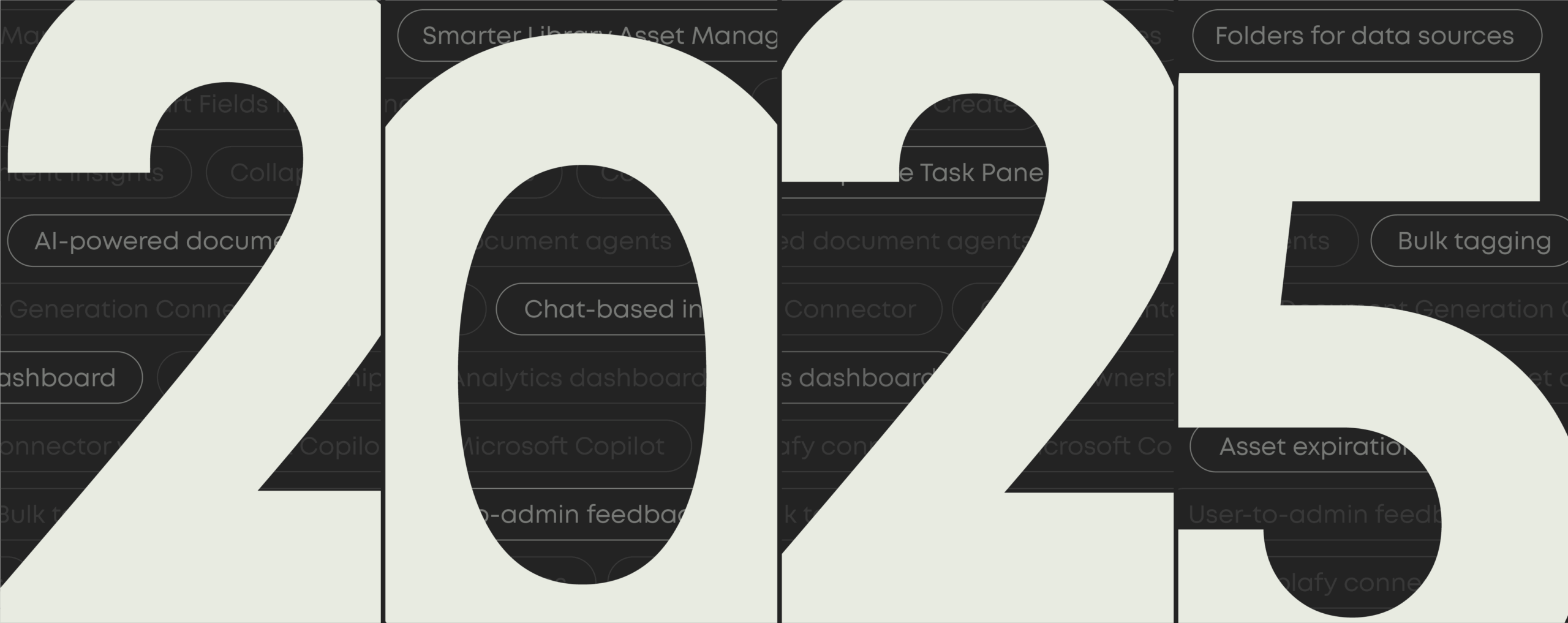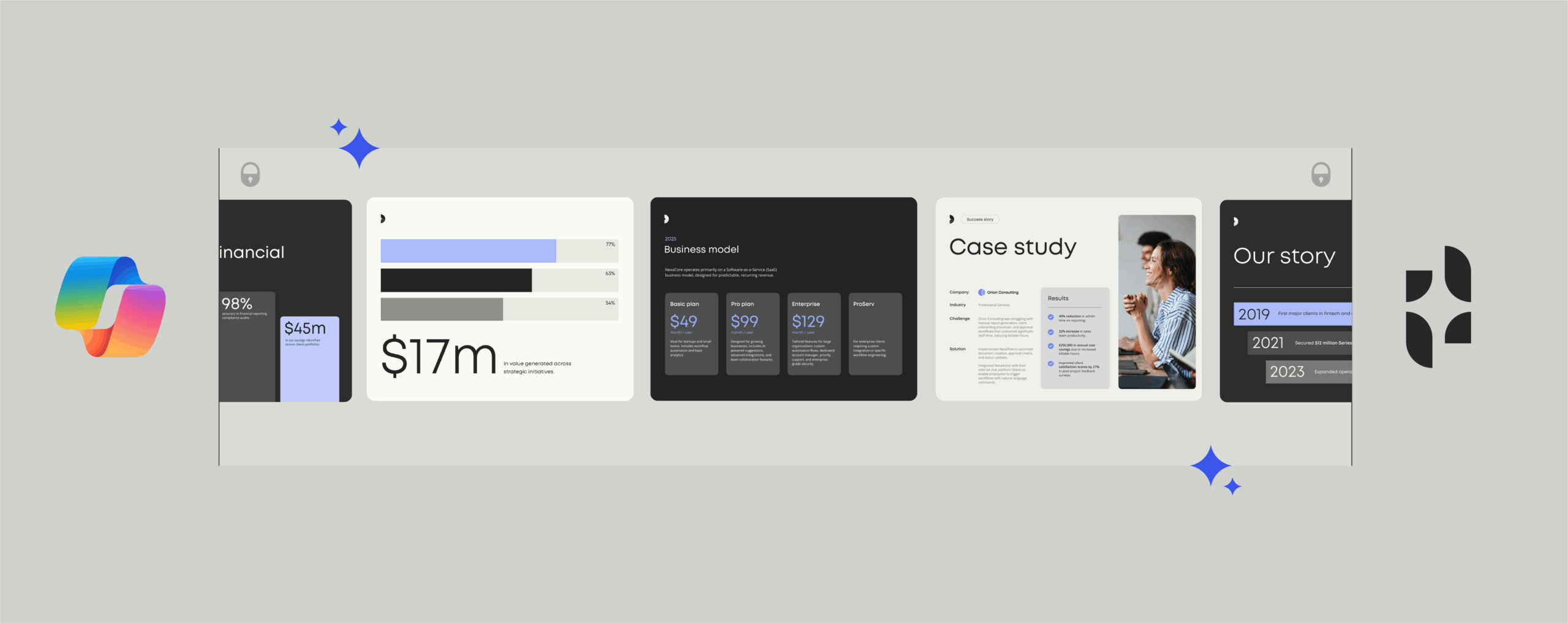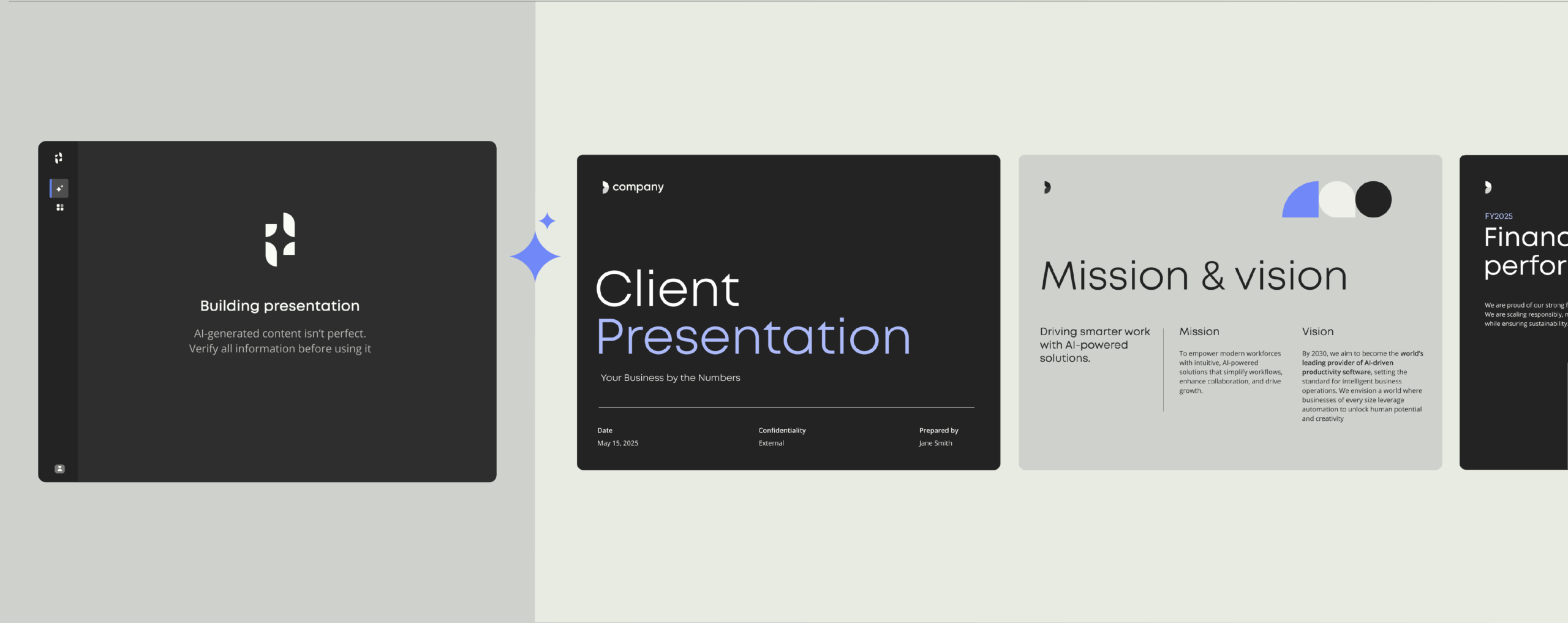8 GenAI prompts every consulting firm should use for quick, consistent market research

AI prompts: You get out what you put in
If you want the right answer, you’ve got to ask the right question.
That’s the challenge with GenAI in the workplace: write a prompt five ways, and you’ll get five different results. For a consultancy firm with thousands of employees, that’s a big risk to consistency and quality.
With the right AI prompts, you can align your teams and deliver the insights that your clients expect, every time.
At Templafy, we’ve spent over a decade helping leading consultancy firms automate their document work. In this blog, we share the top eight GenAI prompts our clients use to speed up market research and sharpen their documents.


Build consultancy documents that stand out, in seconds
Your competitors are already winning clients with proposals, pitches, and reports powered by Templafy.
Schedule a call with our team today to see how your teams can work faster and smarter.
8 AI prompts to make market research faster and more consistent
Using GenAI can speed up the creation of essential consultancy documents, like audit reports and proposals, by handling the heavy lifting for you—gathering data from reliable sources and generating high-quality content.
Setting up the right prompts ensures that your teams work efficiently and stay on-brand. Here are eight GenAI prompts that consulting firms can use every day:
GENAI
Eight GenAI prompts for consulting firms
- Deliver a market overview and trends analysis
- Analyze the competitive landscape
- Define customer segmentation and personas
- Uncover consumer behavior and insights
- Identify trends in technology and innovation
- Outline regulatory and compliance insights
- Assess risks and opportunities
- Evaluate digital strategy and channel insights
Keep up with AI
Get practical tips and real stories on how AI is changing document work. Stay informed and make smarter choices for your team.
1. Deliver a market overview and trends analysis
Objective: Give clients a high-level view of the current market landscape.
Sample prompt:
“Provide a comprehensive overview of the current [industry] market. Include recent trends, growth rates, emerging technologies, regulatory changes, and shifts in consumer behavior. Focus on key drivers of market change and upcoming trends.”
2. Analyze the competitive landscape
Objective: Offer an in-depth look at key competitors and their positioning.
Sample prompt:
“Conduct a competitive analysis for [industry/sector]. Include a SWOT analysis of the top competitors, covering their strengths, weaknesses, market share, and product/service differentiators. Suggest areas where our client could gain an advantage.”
3. Define customer segmentation and personas
Objective: Segment the client’s customer base to refine strategies.
Sample prompt:
“Break down the target customer base for [client’s product/service] in [market or region]. Segment by demographics, psychographics, and buying behaviors. Describe each segment’s key characteristics, purchasing patterns, and main needs. Include ideal customer personas with examples.”
4. Uncover consumer behavior and insights
Objective: Understand customer motivations and buying patterns.
Sample prompt:
“Analyze consumer behavior within the [industry/market] for [client’s product/service]. Include insights on motivations, purchase triggers, decision-making processes, and online trends. Note any changes in behavior due to recent market events.”
5. Identify trends in technology and innovation
Objective: Spot emerging technologies that could impact the client’s business.
Sample prompt:
“Identify emerging technologies and innovations in the [industry/sector] relevant to [client’s business]. Focus on advancements in automation, AI, digital transformation, and industry-specific innovations. Discuss how these technologies could benefit or pose risks to our client.”
6. Outline regulatory and compliance insights
Objective: Map out the regulatory landscape and compliance risks.
Sample prompt:
“Provide an overview of current and upcoming regulatory requirements for the [industry/market] in [specific region]. Highlight recent changes, legal risks, and obligations that may impact operations, especially in sectors like healthcare, finance, or energy.”
7. Assess risks and opportunities
Objective: Identify risks and growth opportunities within the market.
Sample prompt:
“Conduct a risk and opportunity assessment for [client’s industry/market]. Outline market threats, economic risks, competitive risks, and operational challenges. Highlight growth areas, acquisition opportunities, and possible partnerships.”
8. Evaluate digital strategy and channel insights
Objective: Explore digital trends and opportunities in online channels.
Sample prompt:
“Analyze digital marketing and online engagement trends in the [industry/market]. Focus on consumer behavior across digital channels, social media engagement, and trends in content. Identify key opportunities to improve brand visibility and leverage online channels.”
How Templafy manages GenAI prompts
One consultant asks ChatGPT, “Summarize recent market trends in finance.” Another asks, “Identify the top five financial trends impacting risk management for UK firms over the past year.” One of these prompts delivers a thorough, client-ready assessment—and that’s the importance of consistent AI prompt management.
Templafy adds a management layer to GenAI, giving companies complete control over AI prompts and ensuring every team member—from junior analysts to senior consultants—asks the right questions. With Templafy, firms can set detailed prompt parameters, including writing style, tone-of-voice, length, specific key points to highlight, and the format for laying out the analysis. Well-engineered prompts can even span multiple pages, providing clear and actionable guidance for AI-generated content.
Templafy also connects directly to company-approved databases, pulling the latest insights on industries, personas, and markets. This keeps content accurate, reliable, and aligned with brand and compliance standards, all while speeding up the document creation process.
The benefits of Templafy
10 hrs
saved per employee, per week creating proposals
25 %
reduction in the time spent creating audit reports
7,000 +
engagement letters automated monthly, saving time and money
Our customers say it best
“The fastest that I probably could have given my client a well thought out PowerPoint presentation was at least five days. And it’s probably cut in half now that we have Templafy.”

Alex Steging,
VP/GM, Insights, Material+
Additional content
More blogs in this series
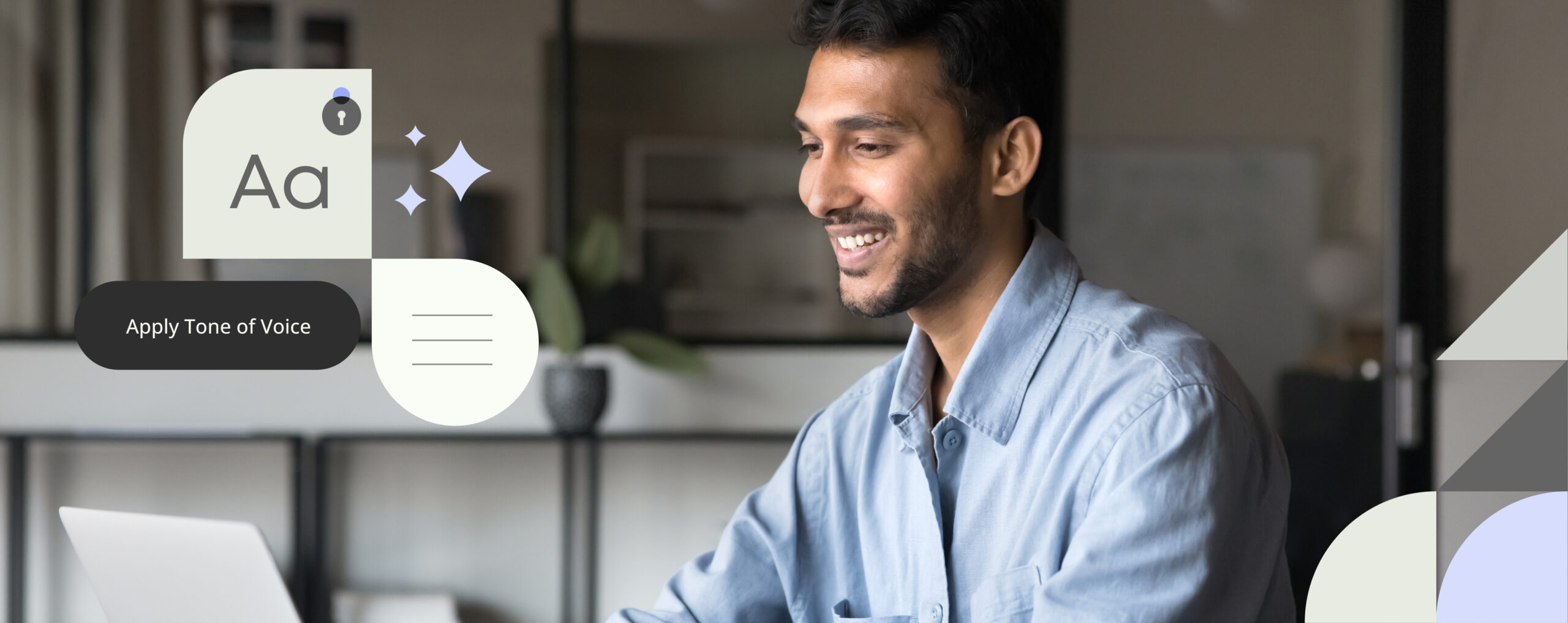
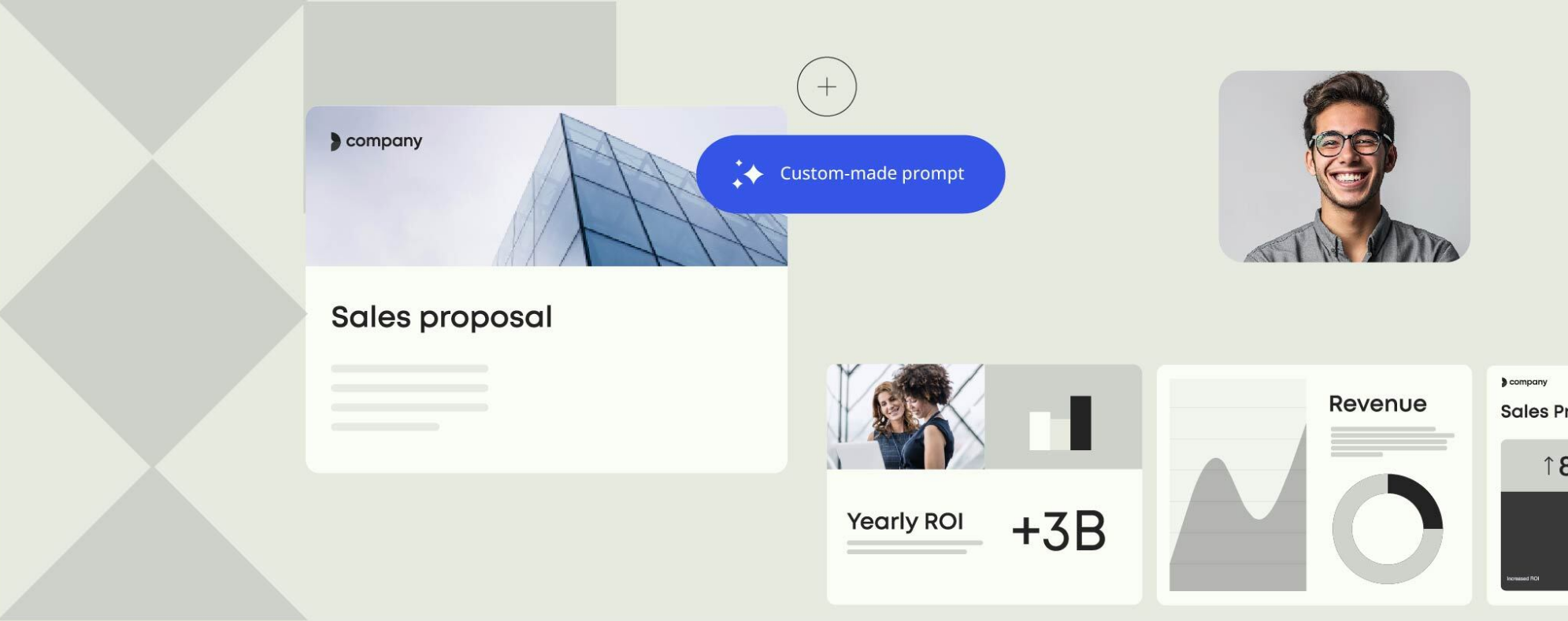

Ready to see Templafy in action?
Your competitors are already winning clients over with proposals, pitches, and reports powered by Templafy. With tools to manage prompts, streamline document creation, and ensure brand alignment, Templafy is helping consultancy firms save time and deliver high-quality results, every time. Book a demo today to see how your team can work faster, stay consistent, and create impactful documents that make a difference.

